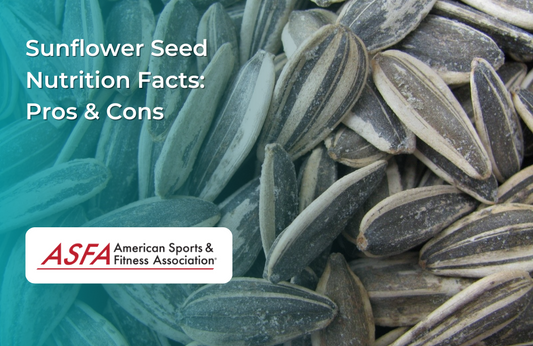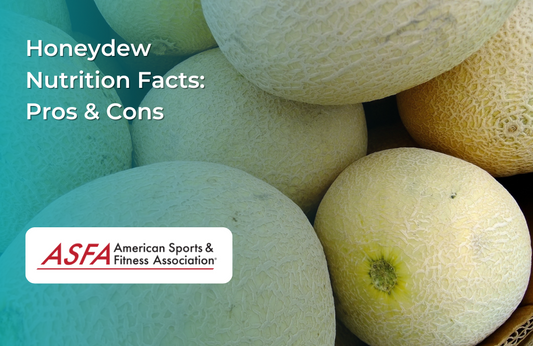Shiitake mushrooms are a nutrient-rich fungus known for their deep, umami flavor and numerous health benefits. They are widely used in Asian cuisine and valued for their immune-boosting properties, fiber content, and essential vitamins and minerals. While shiitake mushrooms provide several advantages, some considerations, such as potential allergic reactions and digestion issues, should be noted. Understanding their nutritional profile helps determine how they fit into a balanced diet.
Shiitake Mushroom Nutrition Facts: Pros, Cons, and Nutritional Profile
A one-cup serving of cooked shiitake mushrooms contains approximately 40–50 calories, 10 grams of carbohydrates, 2 grams of protein, and less than 1 gram of fat. They are an excellent source of fiber, providing around 3 grams per serving, which supports digestion and gut health. Shiitake mushrooms are rich in B vitamins (B5, B6, niacin, and riboflavin), copper, selenium, manganese, and zinc, which contribute to energy production, immune function, and overall well-being. They contain compounds like lentinan and beta-glucans, which have potential immune-boosting and anti-inflammatory properties.
What Are Shiitake Mushrooms?
Shiitake mushrooms (Lentinula edodes) are a type of edible fungus native to East Asia, particularly Japan and China. Renowned for their meaty texture and rich, earthy flavor, shiitake mushrooms have become a staple in many culinary traditions around the world. They are the second most widely cultivated edible mushroom globally, reflecting their popularity and versatility in cooking. As one of the most recognized edible mushrooms, shiitake mushrooms are celebrated not only for their culinary uses but also for their nutritional and health benefits, including various beneficial compounds that contribute to health improvements and medicinal uses. Beyond their culinary uses, shiitake mushrooms have been revered in traditional herbal medicine for thousands of years, celebrated for their potential health benefits and medicinal properties.
Shiitake Mushroom Nutrition Facts
Shiitake mushrooms are a nutrient-rich food, offering a wealth of vitamins, minerals, and other beneficial compounds while being low in calories. A one-cup serving of cooked shiitake mushrooms (145g) provides:
-
81 calories
-
2.3g of protein
-
21g of carbohydrates
-
0.3g of fat
-
3g of dietary fiber
-
10% of the Daily Value (DV) for vitamin D
-
10% of the DV for copper
-
10% of the DV for selenium
-
5% of the DV for vitamin B6
-
5% of the DV for magnesium
-
5% of the DV for phosphorus
In addition to these nutrients, shiitake mushrooms are a good source of antioxidants, including vitamin C and beta-carotene, and contain linoleic acid, an essential fatty acid. Lentinan, a compound found in shiitake mushrooms, has been shown to inhibit human colon carcinoma development, highlighting its potential role in cancer prevention. This impressive nutritional profile makes shiitake mushrooms a valuable addition to a balanced diet.
Pros of Shiitake Mushrooms
Shiitake mushrooms contain beta-glucans, which support immune health by enhancing the body’s defense mechanisms. Studies have shown that lentinan, a compound found in shiitake mushrooms, can enhance responses to conventional therapies in breast cancer treatment. They are rich in fiber, which aids digestion, promotes gut health, and helps regulate blood sugar levels. Clinical studies have also demonstrated the positive effects of lentinan on immune responses and tumor growth modulation in advanced gastric cancer patients. Shiitake mushrooms provide antioxidants and anti-inflammatory compounds, which may help reduce oxidative stress and support heart health. They are low in calories and fat, making them a nutrient-dense food suitable for weight management. The presence of B vitamins and minerals supports brain health, metabolism, and energy production.
Cons of Shiitake Mushrooms
Some people may experience allergic reactions or skin sensitivity after consuming shiitake mushrooms, particularly in raw form. For patients with recurrent ovarian cancer and recurrent advanced gastric cancer, lentinan has shown potential as an adjunct therapy, improving treatment outcomes when combined with other treatments. Excessive consumption of shiitake mushrooms may cause digestive discomfort, bloating, or mild diarrhea in some individuals due to their high fiber content. Rarely, shiitake mushrooms can cause shiitake dermatitis, a skin reaction characterized by an itchy rash when consumed raw or undercooked. Certain bioactive compounds in shiitake mushrooms may interact with blood-thinning medications, so individuals on such treatments should consult a healthcare provider.
Raw Shiitake Mushrooms
Raw shiitake mushrooms can add a unique flavor and texture to salads, smoothies, and other dishes. However, consuming them raw may cause digestive issues for some individuals. Cooking shiitake mushrooms is generally recommended, as it helps break down their cell walls, making their nutrients more bioavailable and easier to digest. Additionally, cooking can reduce the risk of shiitake dermatitis, a skin reaction characterized by an itchy rash that can occur in some people when they consume raw or undercooked shiitake mushrooms.
Shiitake Mushroom Extract
Shiitake mushroom extract is a concentrated form of the mushroom’s bioactive compounds, including lentinan, a polysaccharide known for its immunomodulatory and antitumor effects. Studies have shown that lentinan can improve survival rates and quality of life for patients with inoperable advanced gastric cancer. This extract is often used as a dietary supplement and has been studied for its potential health benefits, such as stimulating the immune system and reducing inflammation. Incorporating shiitake mushroom extract into your wellness routine can provide a convenient way to harness the health benefits of this powerful edible mushroom.
Precautions and Interactions
When consuming shiitake mushrooms, it is essential to be aware of potential precautions and interactions. While shiitake mushrooms are generally considered safe to eat, there are some individuals who may need to exercise caution.
-
Allergic Reactions: Some people may be allergic to shiitake mushrooms, which can cause symptoms such as hives, itching, and difficulty breathing. If you experience any of these symptoms after consuming shiitake mushrooms, seek medical attention immediately.
-
Shiitake Dermatitis: Shiitake dermatitis is a skin condition that can occur in some individuals who handle or consume shiitake mushrooms. Symptoms include skin irritation, redness, and itching. This condition is more likely to occur when shiitake mushrooms are consumed raw or undercooked.
-
Interactions with Medications: Shiitake mushrooms may interact with certain medications, such as blood thinners, diabetes medications, and blood pressure medications. If you are taking any medications, consult with your healthcare provider before consuming shiitake mushrooms to avoid any adverse interactions.
-
Pregnancy and Breastfeeding: While shiitake mushrooms are generally considered safe to eat during pregnancy and breastfeeding, it is essential to consult with your healthcare provider before consuming them in large quantities. This ensures that both mother and baby remain safe and healthy.
Cooking and Preparation
Shiitake mushrooms can be cooked in a variety of ways to bring out their unique flavor and texture. Here are some tips for cooking and preparing shiitake mushrooms:
-
Cleaning: Before cooking, gently wipe the mushrooms with a damp cloth to remove any dirt or debris. Avoid soaking them in water, as they can become waterlogged and lose their flavor.
-
Slicing: Slice the mushrooms thinly to help them cook evenly and quickly. This also allows their rich, earthy flavor to infuse more thoroughly into your dishes.
-
Sautéing: Sauté the mushrooms in a little oil or butter to bring out their natural flavor. This method is perfect for adding shiitake mushrooms to stir-fries, pasta dishes, or as a topping for steaks and other meats.
-
Boiling: Boil the mushrooms in water or broth to create a delicious and nutritious soup. This method is commonly used in Asian cuisine to make hearty and flavorful broths.
-
Drying: Dry the mushrooms to preserve them for later use. Simply slice the mushrooms thinly and place them in a low-temperature oven (150°F - 200°F) for several hours. Dried shiitake mushrooms can be rehydrated and used in a variety of dishes.
Some popular recipes that feature shiitake mushrooms include:
-
Stir-fries: Stir-fry sliced shiitake mushrooms with your favorite vegetables and seasonings for a quick and healthy meal.
-
Soups: Add sliced shiitake mushrooms to your favorite soups for added flavor and nutrition. They pair particularly well with miso soup and chicken broth.
-
Risottos: Use shiitake mushrooms to add depth and umami flavor to your risottos. Their meaty texture complements the creamy consistency of risotto perfectly.
-
Gravies: Use shiitake mushrooms to make a delicious and savory gravy to serve over meat or vegetables. Their rich flavor enhances the taste of any dish.
By following these cooking and preparation tips, you can enjoy the delicious flavor and numerous health benefits of shiitake mushrooms.
Storage and Food Safety
To ensure the freshness and safety of shiitake mushrooms, proper storage is essential. Fresh shiitake mushrooms should be kept in a cool, dry place, away from direct sunlight, and can be stored in the refrigerator for up to a week. For longer storage, fresh mushrooms can be frozen for up to a year. Dried shiitake mushrooms, on the other hand, can be stored in a sealed bag or container for up to a year. When handling shiitake mushrooms, it is important to wash your hands thoroughly and clean any utensils or surfaces that come into contact with the mushrooms to prevent contamination. This ensures that you can enjoy the full flavor and health benefits of shiitake mushrooms safely.
Conclusion
Shiitake mushrooms are a highly nutritious and flavorful ingredient that provides immune-boosting compounds, fiber, essential vitamins, and minerals. Their benefits for digestion, heart health, and energy metabolism make them a great addition to a balanced diet. While generally safe for most people, those with allergies, digestive sensitivities, or medication concerns should consume them in moderation. Cooking shiitake mushrooms thoroughly and incorporating them into soups, stir-fries, and grain dishes ensures maximum nutritional benefits while minimizing potential side effects.
FAQs
Are shiitake mushrooms good for the immune system?
Yes, shiitake mushrooms contain beta-glucans and lentinan, which support immune health by enhancing the body’s defense mechanisms.
Additionally, lentinan has shown potential benefits in enhancing the immune response in breast cancer patients, making it a valuable component in combination therapies.
Can shiitake mushrooms cause shiitake dermatitis?
Some individuals may experience mild allergies, skin irritation, or shiitake dermatitis if consumed raw or undercooked.
Are shiitake mushrooms good for digestion?
Yes, they are high in fiber, which supports gut health and aids digestion, though excessive intake may cause bloating in sensitive individuals.
Do heart health shiitake mushrooms help with heart health?
Yes, they contain compounds that may help lower cholesterol levels and reduce inflammation, supporting overall cardiovascular health.
How should dried shiitake mushrooms be prepared for maximum nutrition?
Cooking shiitake mushrooms by sautéing, roasting, or adding them to soups enhances their flavor and makes their nutrients more bioavailable while reducing potential digestive discomfort.





